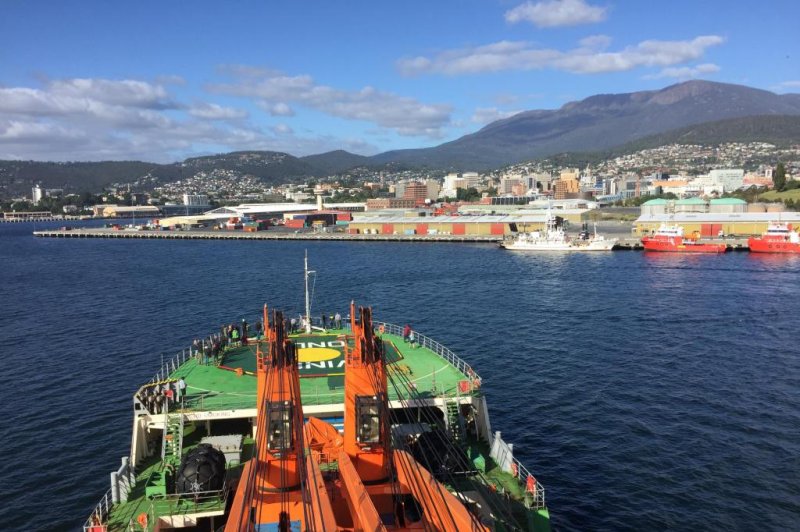The Russian research vessel Akademik Treshnikov pulls into Hobart's harbour in Australia. Photo by D.Rod/EPFL
Jan. 20 (UPI) -- The Akademik Treshnikov, a Russian research vessel, docked in Hobart, Australia, this week after 30 days at sea. The arrival at port marked the completion of Antarctic Circumnavigation Expedition, a scientific expedition organized by the Swiss Polar Institute.
Scientists aboard the ship -- hailing from all over the world -- conducted a variety of research projects while at sea. The scientific disciplines of oceanography, climatology, biology and chemistry are all represented on the ship.
While at sea, water samples are constantly being collected and measured. Scientists are plotting changes in temperature and salinity, as well as concentrations of pollutants and microorganisms.
Stops at a variety of subantarctic islands offered biologists the chance to observe and collect wildlife, including crustaceans, plants and insects -- some of which researchers determined to be non-native.
"The first leg of the expedition met all our expectations!" Daniele Rod, ACE program manager, said in a news release. "Some of the research teams, including the one working on plastics in the ocean and atmosphere, have already logged surprising measurements and data, which they'll keep doing and verifying over the next two legs of the trip."
While at port, scientists have a change to rest, relax and explore Hobart. When the ship departs for the second leg of the journey on Sunday, some scientists will remain on board while others will be replaced by a new crop of researchers.
Stops at subantarctic islands during the second leg will afford researchers the chance to collect ice cores, which will be analyzed for concentrations of trace gases -- data scientists hope will help them accurately plot ancient climate changes.
The Akademik Treshnikov will also make the journey's only stop on Anatarctica during the second leg. Researchers will stop to explore and study Mertz Glacier.
All told, the trip will last roughly three months and feature a total of 22 scientific missions, most of which focus on the effects of climate change on Earth's southern pole.















